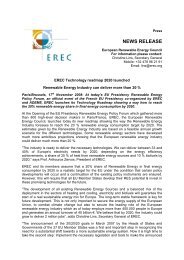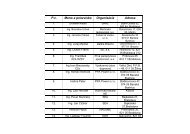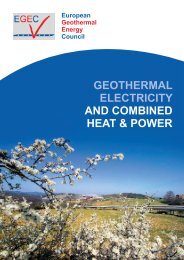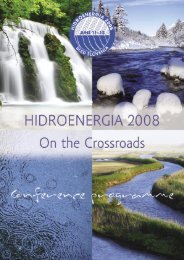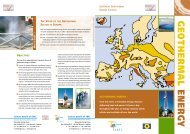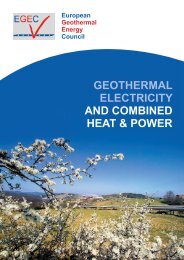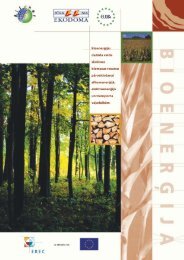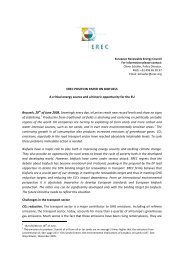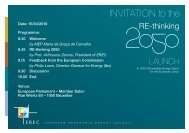CTO Assessment - European Commission
CTO Assessment - European Commission
CTO Assessment - European Commission
You also want an ePaper? Increase the reach of your titles
YUMPU automatically turns print PDFs into web optimized ePapers that Google loves.
can be shortly seen in the following<br />
cases:<br />
EEKLO project is a replication of<br />
many others of its kind in Germany<br />
and Denmark.<br />
Many municipalities, including<br />
Copenhagen, have taken up the<br />
Ålborg model.<br />
The responsible hotels network (BH)<br />
considerably enlarged its field of<br />
action in only two years, also relying<br />
on the support of the campaign<br />
“A New Sun for Tourist Destinations”<br />
carried out by ICAEN.<br />
Extension of the experience of<br />
Varese Ligure to seven more municipalities.<br />
Heinerscheid initiative generated a<br />
large process of consultations by<br />
other municipalities, and a similar<br />
project is being carried out near<br />
Kehmen.<br />
Delft’s 100 Blue Roofs experience<br />
had quick and important repercussions<br />
on cities such as Rotterdam<br />
and The Hague.<br />
After the Växjö Fossil Fuel Free<br />
declaration, the initiative was followed<br />
by several cities, in Sweden<br />
and in the rest of Europe, and the<br />
experience is now being implemented<br />
by the Iwate Prefecture (Japan).<br />
Inspired by the example of the PV<br />
stadium of Lausanne, another PV<br />
stadium was inaugurated in 2002<br />
in Basel.<br />
In the case of Trhove Sviny, the<br />
model project helped to start similar<br />
projects in Czech republic and<br />
was replicated in many towns and<br />
villages.<br />
The experience of Kronsberg is not<br />
only a basic reference for Germany<br />
and other countries, but it is at<br />
present an actual standard in the<br />
innovation of building areas.<br />
The case of Austria (cf. Gleisdorf<br />
case study) shows that it is equally<br />
important to set up networks inside<br />
of a region by motivating key political<br />
actors of communities to set<br />
up a discussion group and bring<br />
local population together to commonly<br />
find solutions to install RE<br />
systems in their municipality.<br />
The function of replication of successful<br />
<strong>CTO</strong> initiatives is strengthened<br />
through the activities of specialised<br />
centres and the work of networks.<br />
ITER is an excellent examples of the<br />
first case, as well as the Soltherm<br />
initiative that has also developed reference<br />
databases on replicable<br />
projects.<br />
<strong>European</strong> networks such as enabled<br />
through the <strong>CTO</strong> Renewable Energy<br />
Partners network, or also other networks<br />
specialised in one type of community<br />
or technology for instance (ex:<br />
Energie-Cités, a <strong>European</strong> network<br />
of sustainable cities; or FEDARENE,<br />
a <strong>European</strong> network of regional energy<br />
and environment agencies; or<br />
also INSULA, the International Scientific<br />
Council for Island Development)<br />
has proven to play a crucial<br />
role in accelerating the demonstration<br />
of successful RES community<br />
examples. It is more and more crucial<br />
to create bridges with the newly<br />
acceded countries that look for advice<br />
and patronage in the implementation<br />
of their own projects.<br />
Regional and national energy agencies<br />
represent another vector of replication.<br />
They offer consultancy advise<br />
to the local population to ensure local<br />
results. They can also play a coordinator<br />
role to implement RES in<br />
all regions of a country. ADEME has<br />
been able to use the contractual<br />
framework offered by the 26 regions<br />
of France annexed to the State-Region<br />
contracts (CPER) to implement<br />
its actions at local levels, while<br />
spreading the successful experiences<br />
to the rest of the regions of France<br />
more efficiently and at a lower cost.<br />
With the ManagEnergy program the<br />
<strong>European</strong> <strong>Commission</strong> created a <strong>European</strong><br />
wide network and thus, exchange<br />
of information. ManagEnergy<br />
promotes co-operation between local<br />
and regional energy agencies through<br />
workshops, study tours and online<br />
events on energy saving and renewable<br />
energy. The website features details<br />
of over 400 energy agencies and<br />
another 500 organisations, who can<br />
provide valuable expertise and advice<br />
on established energy projects<br />
and technologies.<br />
Achievements and lessons<br />
37


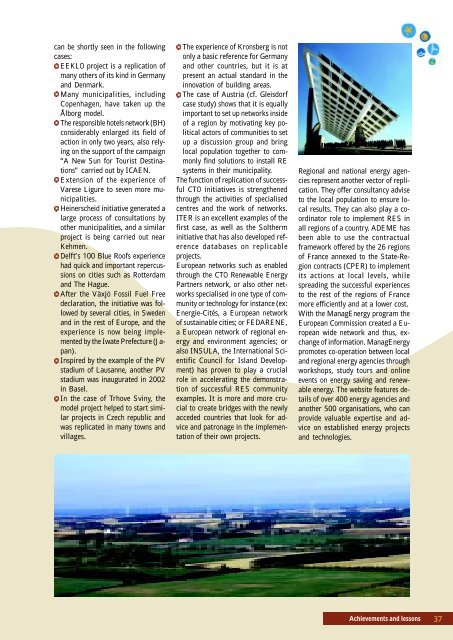
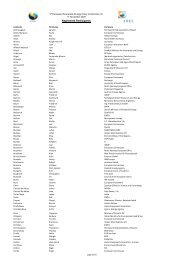
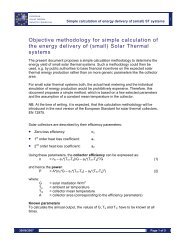
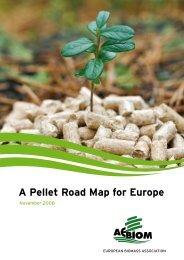
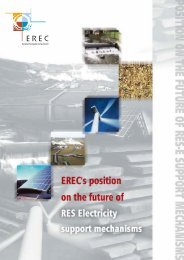
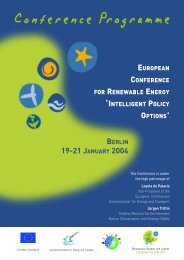
![Energy [R]evolution - Greenpeace](https://img.yumpu.com/47174859/1/184x260/energy-revolution-greenpeace.jpg?quality=85)
